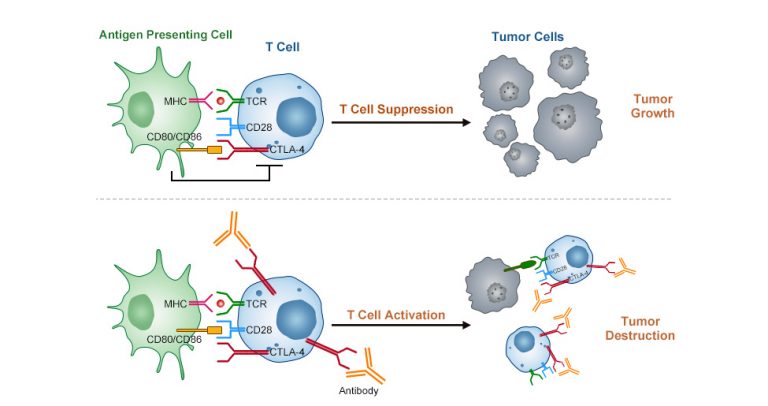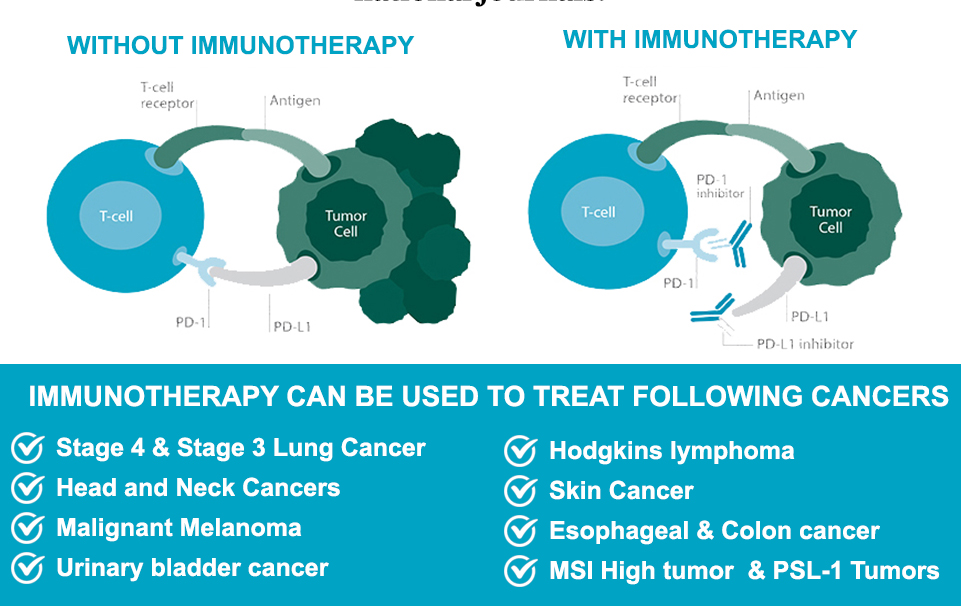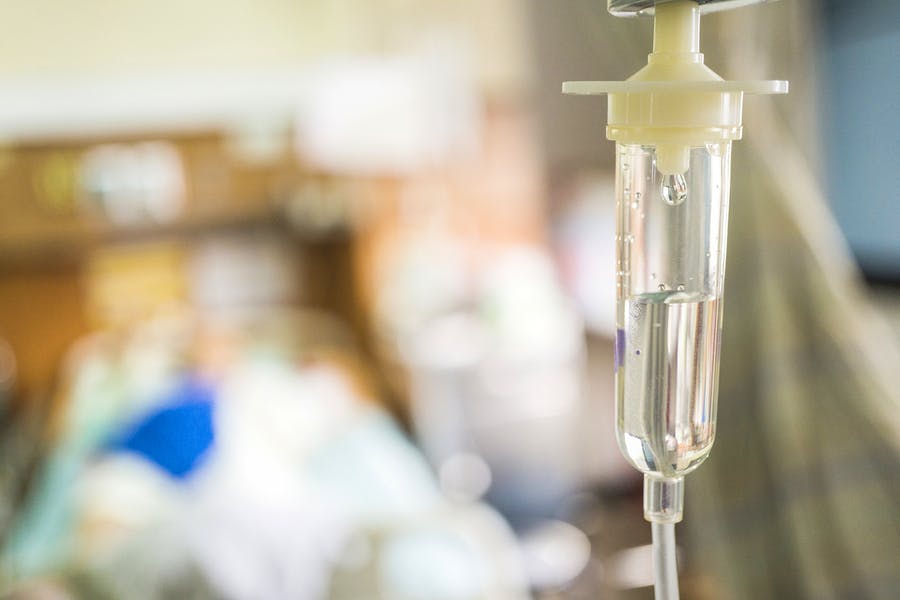
Dr. Waseem Abbas
Cancer Treatment Specialist
Director Research, Max Hospital, Shalimar Bagh
How to contact me
Max Superciality Hospital, FC 50, C and D Block, Shalimar Place Site, Shalimar Bagh, New Delhi, Delhi 110088
Phone: +91 98112 42729
Email: drabbasdoc@gmail.com
Search this website
Common Cancers in India
Get a free E-consultation about lung cancer immunotherapy in Delhi
Immunotherapy Treatment in Delhi, India | Patient information and resources
If the Immune system protects us from Bacteria, Fungi, Viruses, and different infections but why it does not protect us from cancer.
Oct 1, 2018 – James Allison, of the US, and Tasuku Honjo, of Japan, won the noble price in physiology and immune-oncology for the work they did on molecules that act as breaks to our immune system and do not allow the immune system to recognize and kill cancer cells. This laid the foundation for immunotherapy for the treatment of cancer. Why is immunotherapy so innovative, because it does not directly kill cancer cells but improves and boosts the body’s own immune system to fight cancer.
What is Immunotherapy?
These are monoclonal antibodies which are produced in lab stored in vials and administered intravenously, in a particular dosage depending on the type of cancer. It differs from chemotherapy as it is less toxic and has fewer side effects.
Does immunotherapy benefit everybody?
No, patients are selected carefully as per predictive factors and physicians do look at clinical profile and type of tumor for the immunotherapy to work. Immunotherapy can be dangerous sometimes if not given under proper supervision. It has different side effects than chemotherapy. And these side effects have to detect in time.
How does immunotherapy work against cancer?
Immune cells are always found around cancer but they do not kill these cancer cells because they have been put to sleep. What immunotherapy does is, it awakens the force within i.e., it activates these immune cells which subsequently kill these cancer cells. Immunotherapy helps the immune system to better act against cancer. Stimulating, or boosting, the natural defenses of your immune system so it works harder or smarter to find and attack cancer cells.

How effective is Immunotherapy?
It is very effective for particular diseases and properly selected patients. It should not be given to everybody. It should not be misused also. And the amount of benefit should be discussed with experts. Immunotherapy is not a sanjeevni bhooti. In selected lung cancer patients we have seen survival more the 4-5 years, which was never reported before. The amount of benefit has to be discussed again and again. It can range from a few months to years.

How is immunotherapy administered?
Patients may receive immunotherapy in a physician’s office, medical clinic, or hospital outpatient unit. The frequency of treatment depends on a number of factors, such as the type and stage of cancer, the type of immunotherapy being administered, and the body’s reaction to the therapy. Patients receiving immunotherapy are frequently monitored by their doctor through tests, exams, and scans that determine whether the therapy is working and record any effects it may be having on the body.
What are the types of Immunotherapy?
- Monoclonal antibodies
- Treatment vaccines
- T cell transfer system
- Immune checkpoint inhibitors
Can Immunotherapy cure stage 4 cancers?
Our research has shown it prolongs survival and many patients are alive for years now, which was not possible with any other therapy. Patient selection is the key for treatment with immunotherapy
How can we know whether immunotherapy will work or not?
There are certain prognostic and predictive markers and clinical features, that tell the effectiveness of immunotherapy for a particular type of cancer.
- PD-L1
- TILs (Tumor-infiltrating lymphocytes)
- TMB (Tumor Mutation Burden)
- MSI (Microsatellite Instability)
Your treating oncologist will guide you better.
When immunotherapy should be used to treat cancer?
Immunotherapy should be used only where indicated. It should not be used everywhere. Immunotherapy should be used as per indication where it has shown benefit in clinical trials and research. It can be used upfront e.g treatment of stage 4 lung cancer in patients with PDL-1 of more than 50% or after the failure of chemotherapy as 2nd line or 3rd line treatment e.g, lung cancer, kidney cancer, urinary bladder cancer, head and neck cancer, Hodgkin’s, lymphoma, stomach cancer, esophageal cancer, etc.
How can you tell if immunotherapy is working?
You will see your doctor often. He or she will give you physical exams and ask you how you feel. You will have medical tests, such as blood tests and different types of scans. These tests will measure the size of your tumor and look for changes in your blood work.
How immunotherapy is given?
Immunotherapies may be given into a vein (intravenously), or by injection, either under the skin (subcutaneous) or into a muscle (intramuscular). Therapies may also be given directly into a body cavity to treat a specific site

What is the current research in immunotherapy?
Researchers are focusing on several major areas to improve immunotherapy, including:Finding solutions for resistance.
Researchers are testing combinations of immune checkpoint inhibitors and other types of immunotherapy, targeted therapy, and radiation therapy to overcome resistance to immunotherapy.Finding ways to predict responses to immunotherapy.
Only a small portion of people who receive immunotherapy will respond to the treatment. Finding ways to predict which people will respond to treatment is a major area of research. Learning more about how cancer cells evade or suppress immune responses against them. A better understanding of how cancer cells get around the immune system could lead to the development of new drugs that block those processes. How to reduce the side effects of treatment with immunotherapy.Are there clinical trials in India enrolling patients for Immunotherapy?
Yes, there are, but only for a few indications. Because of COVID-19, no new trials are coming to India at present. Soon after COVID 19 is over we will see new trials coming to India for the benefit of patients.How often patients receive immunotherapy?
How often and how long you receive immunotherapy depends on:- Your type of cancer and how advanced it is
- The type of immunotherapy you get
- How your body reacts to treatment
